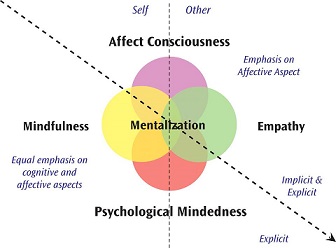- Centro di Ateneo SInAPSI - Napoli
SInAPSi è il Centro di Ateneo per tutti gli studenti che si sentono esclusi dalla vita universitaria a causa di disabilità o difficoltà temporanee. Offre servizi e sostiene iniziative per favorire la partecipazione di tutti gli studenti alla vita universitaria. Collabora con le strutture dell'Ateneo per assicurare l'accessibilità degli ambienti. - Universidad de Sevilla
La Universidad de Sevilla es una institución que presta un servicio público de educación superior mediante el estudio, la docencia y la investigación, así como la generación. - National School of Political and Administrative Studies -
Bucharest
Scoala Nationala de Studii Politice si Administrative este o institutie publica de învatamânt superior si cercetare (universitate A), cu personalitate juridica. Scoala Nationala de Studii Politice si Administrative. - Aarhus University
Verden er sammensat og kompleks. Globale udfordringer kan kun løses, hvis vi samarbejder på tværs af fagområder. - National University of Ireland - Maynooth
Following two centuries of internationally renowned scholarly activity on the Maynooth campus the National University of Ireland, Maynooth was established under the 1997 Universities Act as an autonomous member of the federal structure known as the National University of Ireland.
Contenuto della pagina
Understanding mentalization, reflectivity and narration
During the INSTALL Induction Workshop* professor Francesca Freda (SINAPSI) summarized the aims of the project and highlighted the necessity to connect learning to learn with mentalization/reflectivity and narration. She described each of these concepts, specifying the differences between mentalization and reflectivity, and the role of narration.
The Learning to learn competence is a reflective competence consisting in becoming aware of what a person knows, how he/she knows, and why he/she knows.The process of reflectivity is the phenomenon by which the continuity of the person (his/her sense of identity) and his/her discontinuities (the semiotic production of differences and transformations) enter into a recursive circle.

"Reflectivity is a strategy to take a break from acting to reflect on the meaning we have given to the past events we have experienced", she said and stressed the concept of "position": We take a position in a context but, at the same time, we are positioned by the context, that is a local cultural context. INSTALL aims at opening "the prison" of the continuity of experience, giving to the participants the opportunity to look at themselves in the group through a mirror and a prism, so that they can re-construct their identity". Emotions are fundamental in the meaning process. They are connected to the meaning each person gives to his/her context.
The reflective process aims at re-thinking the relationship between the map and the territory, but not at knowing what the territory really consists in (because we can only reach an interpretation of our own territory). Thinking about our map is useful in order to understand if this map is the best one to explore the territory. The reflective process has the effect of suspending part of the actions of the person, to rethink the direction of the actions in contextual terms, change the perspective through a process of repositioning.
The narrative input becomes the object of reflection, allows the subject to recognize himself in training, to become aware of him/herself in action, to recognize, elaborate on, and regulate the representation he/she has of him/herself.
*The INSTALL Induction Workshop was held in Naples June 25th -27th 2012.
